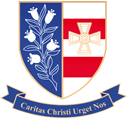Why Study Design Technology?
Design shapes our world and studying this course will give you the opportunity to develop your creative, technical and practical skills by product investigation, design and manufacturing activities.
You will also develop your knowledge and understanding of a wide range of materials and processes used which is important so that you can understand how products can be designed and manufactured.
You also learn about industrial and commercial practices, and the importance of quality checks and the health and safety issues when making products.
Course Content
Unit 1 – Core Technical Principles:
Pupils investigate materials and their applications within design including consideration of efficient material usage, designing for manufacture, maintenance and repair. Product Development is analysed particularly relating to ergonomic and anthropometric user constraints, health and safety and feasibility studies. Learners also develop their digital designing skills and research effective design illustration, intellectual property and marketing.
Unit 2 – Core Designing and Making Principles:
Learners analyse existing products reflecting on the historical, cultural and legal influences on designers. A range of design methods are examined and learners contemplate the impact of effective project management, in addition to the importance of selecting appropriate tools and processes, to effect safe and responsible design and manufacture of products.
Unit 3 – Additional Specialist Knowledge:
Focusing on experiential learning, pupils consider a broad range of materials and manufacturing methods, scrutinising the material properties which influence selection and use in products and how systems are established to ensure total quality management and just in time manufacture.
Assessment
Examination 1 is a two-hour examination which focuses on core technical principles and core designing and making principles. The 100 mark paper is made up of a mixture of short answer, multiple choice and extended response questions and counts for 25% of the overall qualification.
Examination 2 is a two-hour examination which focuses on specialist knowledge, technical and designing and making principles. The 100 mark paper is made up of a mixture of short answer, multiple choice and extended response questions where candidates are required to analyse an existing product and discuss commercial manufacture. The paper counts for 25% of the overall qualification.
In addition to the two examinations, pupils undertake a non-exam assessment where they produce a design portfolio and a final manufactured prototype based upon a substantial design and make task. This 100 mark assessment takes 45 hours throughout the course and counts for 50% of the qualification. Within this assessment, candidates are required to demonstrate practical application of technical principles, designing and making principles and specialist knowledge.
Careers/Higher Education Pathways
Future pathways from this course are very varied covering a range of sectors including telecommunications, aerospace, space technology and exploration, civil engineering, architecture, interior design, robotic, graphics and advertising, public relations and event organisation, automotive design, construction and many more.

